[From the National Museum of Forest Service History's 100-year anniversary commemorative cookbook]
A timber sale on what is now Glacier National Park was the first winter assignment for R.L. Wiesner in 1909. He wrote, "There was a ranger who was on furlough throughout the winter staging at the station here and I batched with him during my assignment on this sale. Generally speaking, we got along fine. There was some difference, however, in our ideas on the handling of the sourdough jar. He didn't believe it should ever be cleaned out. He said the 'green' that formed around the edges wouldn't hurt anyone. He also objected to dumping out the tea grounds because it took too much tea for the next brew if there were no old grounds to start with, and I was advised not to wash the frying pans as washing wore them out. He said he had used them for twenty years without washing them. I had no reason to doubt this statement.
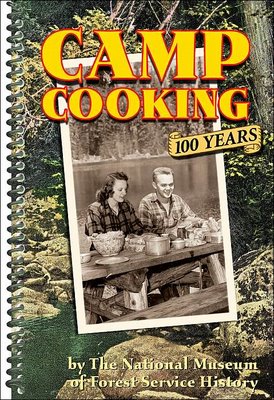
Here's just a sample of the different flavors and varieties of e. coli Big Daddy is currently carrying...
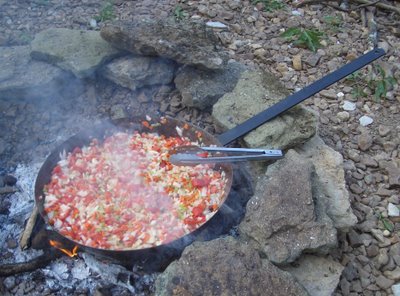
Risotto
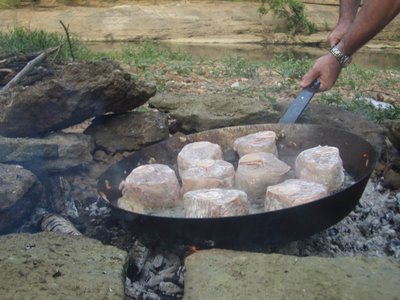
Osso bucco
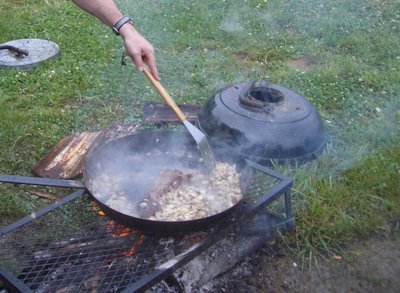
Unidentified neckbone
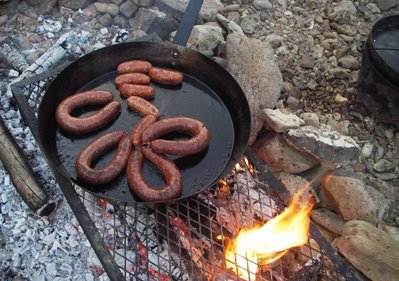
Homemade italian sausage

Sourdough pancakes

Pieces-parts
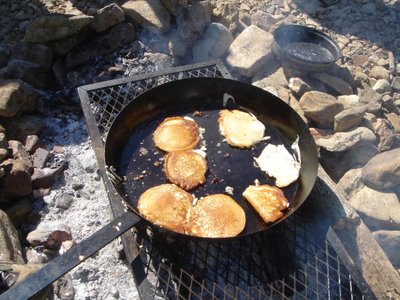
Buttermilk pancakes
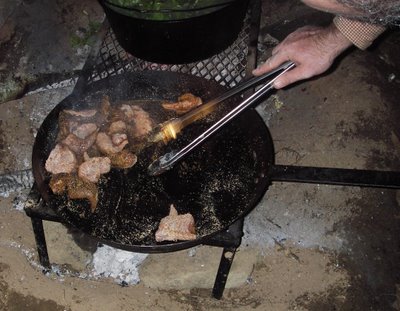
Elk or squirrel...hard to tell
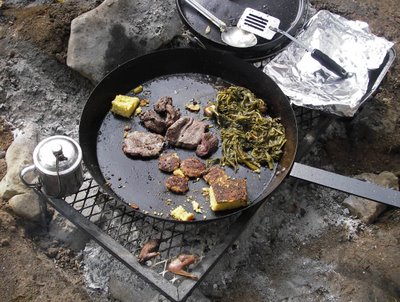
Meat and Three
1 comment:
Note: The borrower of Big Daddy most certainly did not wash it after cooking two dozen filets. In fact, the guests were so astounded by the flavor of those steaks, the pronounced them the best they had ever eaten. Even after telling them that the secret ingredient was a medley of three-month old elk fat, squirrel, sweetbreads, veal shanks and venison sausage, their opinions did not change. Big Daddy is right now resting comfortably in the trunk of the Cadillac, where it has been since it was pulled from the fire, and the grease-laden steel was allowed to cool.
Post a Comment